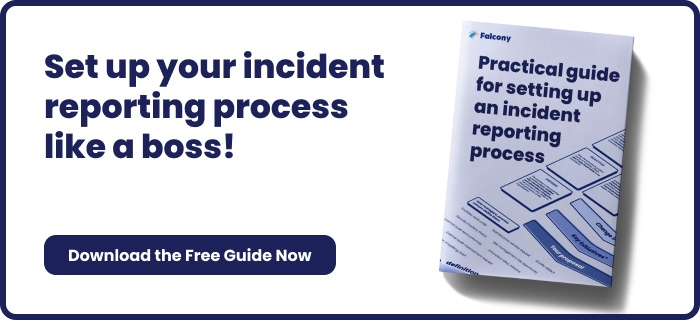The Psychology Behind Reporting Unsafe Conditions Over Unsafe Acts
In the realm of workplace safety, reporting unsafe conditions is often more common than reporting unsafe acts. This phenomenon might seem counterintuitive, but when we delve into the psychology behind it, the reasons become clearer.
In this blog post, we will explore why individuals tend to report unsafe conditions over unsafe acts, focusing on the difficulties associated with admitting one's own mistakes and the fear of potential retaliation.
Admitting One's Own Mistakes
One of the primary reasons why people tend to report unsafe conditions over unsafe acts is the inherent difficulty in admitting one's own mistakes. Human nature is such that we often find it challenging to acknowledge our errors, especially when they can have serious consequences, such as accidents or injuries in the workplace.
When an individual engages in an unsafe act, they might hesitate to report it due to feelings of embarrassment, shame, or guilt. The fear of facing consequences, such as reprimands or disciplinary actions, can lead to a reluctance to admit wrongdoing. This psychological barrier can discourage employees from coming forward and reporting their unsafe actions.
On the other hand, reporting unsafe conditions, which are typically beyond an individual's control, feels less personal. It is easier for employees to identify and report hazards in the environment, as doing so doesn't involve admitting fault. This subtle distinction in psychology plays a significant role in the reporting behavior of individuals.
Fear of Retaliation
Another significant factor contributing to the preference for reporting unsafe conditions is the fear of retaliation. In many workplaces, there is a legitimate concern among employees that reporting unsafe acts might result in negative consequences, such as discrimination, harassment, or even job loss.
When employees witness or are aware of unsafe acts committed by their colleagues, they may hesitate to report them for fear of becoming whistleblowers. This fear of retaliation can be paralyzing, making it difficult for individuals to come forward with information that could prevent accidents or injuries.
In contrast, reporting unsafe conditions is seen as a proactive step towards ensuring workplace safety, and it is less likely to result in personal repercussions. Employees tend to view reporting hazardous environmental factors as a collective responsibility rather than an individual's fault, which makes it a more accessible and less intimidating task.
Promoting a Culture of Safety Reporting
To address the issue of underreporting unsafe acts, organizations should focus on creating a culture of safety reporting that encourages open communication and transparency. Here are some strategies to promote such a culture:
-
Non-Punitive Reporting: Establish a reporting system that emphasizes learning and improvement rather than punishment. Encourage employees to report unsafe acts without fear of reprisal.
-
Anonymous Reporting: Provide options for anonymous reporting to protect the identity of individuals who fear retaliation.
-
Training and Education: Offer training programs to raise awareness about the importance of reporting unsafe acts and conditions. Ensure that employees understand the potential consequences of not reporting safety concerns.
-
Reporting Channels: Make reporting channels easily accessible and user-friendly, such as through mobile apps or dedicated reporting platforms.
Conclusion
In the world of workplace safety, reporting unsafe conditions over unsafe acts is a common phenomenon influenced by human psychology. Overcoming the reluctance to report unsafe acts requires organizations to create a safe and supportive reporting culture that values transparency, learning, and improvement. By addressing the psychological barriers associated with admitting mistakes and the fear of retaliation, companies can enhance their safety programs and reduce the risks associated with unsafe behaviors.
Are you looking for a tool to report incidents or any other issues in your organisation? Falcony | Observe ticks all the boxes for incident management, is easy to customise, enables real dialogue and is a lot more.
We are building the world's first operational involvement platform. Our mission is to make the process of finding, sharing, fixing and learning from issues and observations as easy as thinking about them and as rewarding as being remembered for them.
By doing this, we are making work more meaningful for all parties involved.
More information at falcony.io.

Related posts
Difference between unsafe act and unsafe condition
Safety is a paramount concern in every aspect of life, whether at home, in the workplace, or in...
How unsafe acts can improve safety management?
Conventional wisdom dictates that unsafe acts are unequivocally detrimental. They represent lapses...
Tech to the rescue: 10 ways how digital tools are revolutionizing near miss and unsafe act reporting
Gone are the days of tedious paper-based reporting systems and the fear of being "that person" who...





